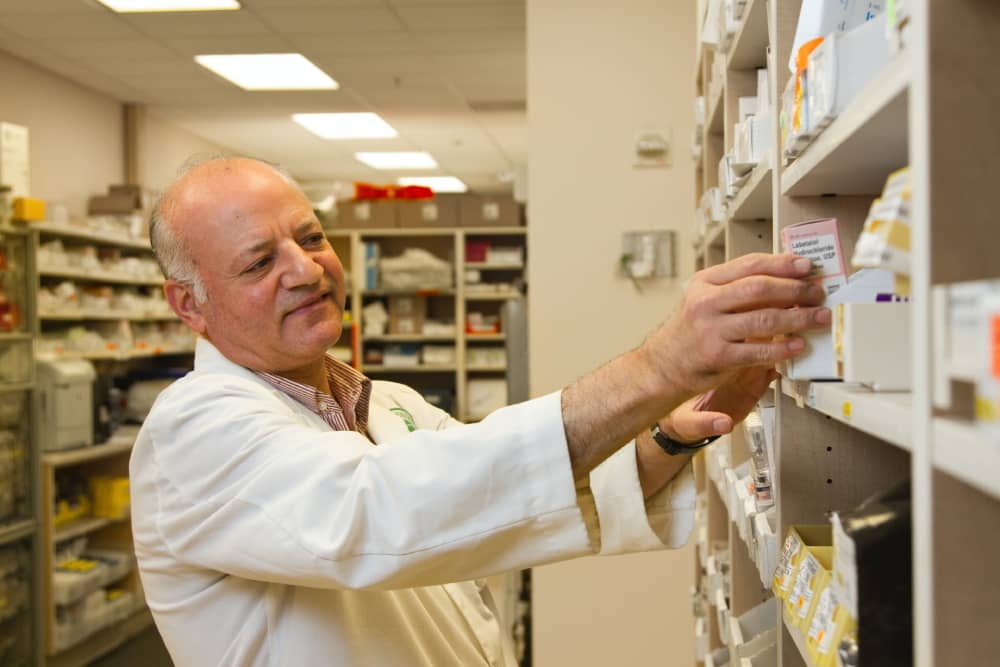While the healthcare industry might not be recession-proof, it’s close. In fact, healthcare is expected to be one of the fastest-growing sectors in the next decade, with an estimated 18% growth rate. That’s more than twice the average growth rate for all other industries. Now is a great time to move if you’re considering a healthcare career.

Healthcare is a vast and complex industry comprising many different types of jobs. To help you narrow your search, we’ve compiled a list of the top 9 careers in the healthcare industry.
1. Nurses
Nursing is an advantageous career choice for those who want to make a difference in the lives of others. Nurses have the opportunity to build relationships with patients and families while providing compassionate care and support when it’s needed most. Not only do nurses get to witness firsthand how their actions can positively affect the lives of others, but they also gain valuable experience that can be used in other areas throughout their careers.
In addition to providing direct patient care, nurses often take on administrative roles within hospitals or clinics. For example, they may serve as supervisors or managers over other nursing staff members, leading teams through complex cases or managing day-to-day operations at a facility. If you’re interested in a career in nursing, enrolling in online college nursing programs is the perfect way to get started. Some top nursing jobs include registered nurse, nurse practitioner, and licensed practical nurse.
2. Physicians
A physician is trained and qualified to diagnose and treat medical conditions. Physicians are usually found in hospitals, clinics, and other healthcare facilities. They provide primary care services such as physical exams, illness diagnoses, medication prescriptions, and treatment plans for their patients. Some physicians specialize in a particular area of medicine, such as internal medicine or cardiology.
To become a physician, you’ll typically need to complete a four-year bachelor’s degree program, followed by four years of medical school and at least three years of residency. Once you have completed your training and passed all the necessary exams, you can become board certified in your chosen specialty.
3. Pharmacists
You’re likely interacting with a pharmacist whenever you go to the pharmacy. Pharmacists are responsible for accurately filling prescriptions and informing patients or healthcare practitioners about medications. They also advise patients on how to properly take medications and what potential side effects they may experience.

In addition to working in retail pharmacies, pharmacists can specialize in areas such as geriatric medicine, oncology, or clinical research. To become a pharmacist, you must obtain at least a bachelor’s degree in pharmacy and pass the required exams to be licensed in your state.
4. Physical Therapists
You may be referred to a physical therapist if you suffer an injury or illness that affects your mobility. Physical therapists are healthcare professionals who help people manage pain and improve their movement. They often use specialized exercises and equipment to help patients recover from medical conditions or injuries.
Physical therapists must hold a master’s degree in physical therapy, which usually takes three years of study. After graduating, physical therapists must pass a state licensing exam and complete continuing education credits to maintain their license.
5. Medical Assistants
When scheduling appointments or dealing with insurance companies, you’re likely interacting with a medical assistant. Medical assistants perform administrative and clinical duties in doctors’ offices, hospitals, and other healthcare settings. They help organize patient records, schedule appointments, update patient information, prepare exam rooms, and assist physicians during exams.
Medical assistants typically must complete a post-secondary program that awards either a certificate or an associate’s degree. Although certification is not required, many medical assistants become certified to increase their job prospects and earning potential. The American Association of Medical Assistants administers the certification exam.
6. Mental Health Counselors
If you’re struggling with mental health issues, such as depression, anxiety, or addiction, a mental health counselor can help. Mental health counselors provide counseling and therapy to individuals, couples, families, and groups with various mental health issues, such as depression, anxiety, relationship problems, and substance abuse.
To become a mental health counselor, you must obtain a master’s degree in counseling or psychology. Some states also require licensure to practice, which may involve taking an exam and completing continuing education credits. Mental health counselors typically need at least two years of supervised experience before becoming licensed.
7. Radiologic Technologists
Digital imaging tests, such as X-rays and MRIs, are increasingly important in diagnosing medical conditions. Radiologic technologists operate imaging equipment to produce images of patients’ bodies that doctors can use to diagnose injuries or diseases. These technologists also prepare patients for imaging tests and provide instructions on remaining still during the procedure.
Most radiologic technologists hold an associate’s degree in radiologic technology. In addition, some states require radiologic technologists to obtain licensure, which involves passing an exam and completing continuing education credits. Radiologic technologists must also demonstrate knowledge of radiation safety protocols to ensure patient safety.
8. Respiratory Therapists
The most common respiratory diseases, such as asthma and COPD, can greatly reduce a person’s quality of life. Respiratory therapists work with patients to diagnose and treat respiratory problems. They provide medical treatments to improve breathing, including administering medication, setting up ventilators, and teaching patients how to use breathing devices.
A minimum of an associate’s degree in respiratory therapy is required to become a respiratory therapist. In addition, many states require these therapists to obtain licensure, which includes passing an exam and completing continuing education credits. Respiratory therapists must also complete CPR certification to practice. Also Read – Reasons Why You Might Want to Pursue a Doctorate in Education
9. Registered Nurses
Registered nurses provide direct patient care as one of the most critical jobs in the medical field. They carry out doctor’s orders, administer medications, monitor patients’ vital signs, and educate patients on managing their condition and following a treatment plan. Registered nurses can work in various settings and specialize in different areas of healthcare.
To become a registered nurse, you must obtain a minimum of an associate’s degree in nursing. In addition, all states require registered nurses to be licensed by passing the National Council Licensure Examination (NCLEX). Registered nurses must also complete continuing education credits to maintain their licensure.
These are just some of the many medical jobs available in the healthcare industry. With the proper education and experience, you can find a job that’s both rewarding and fulfilling. Whether you want to help diagnose illnesses or provide patient care, you have a medical job.



